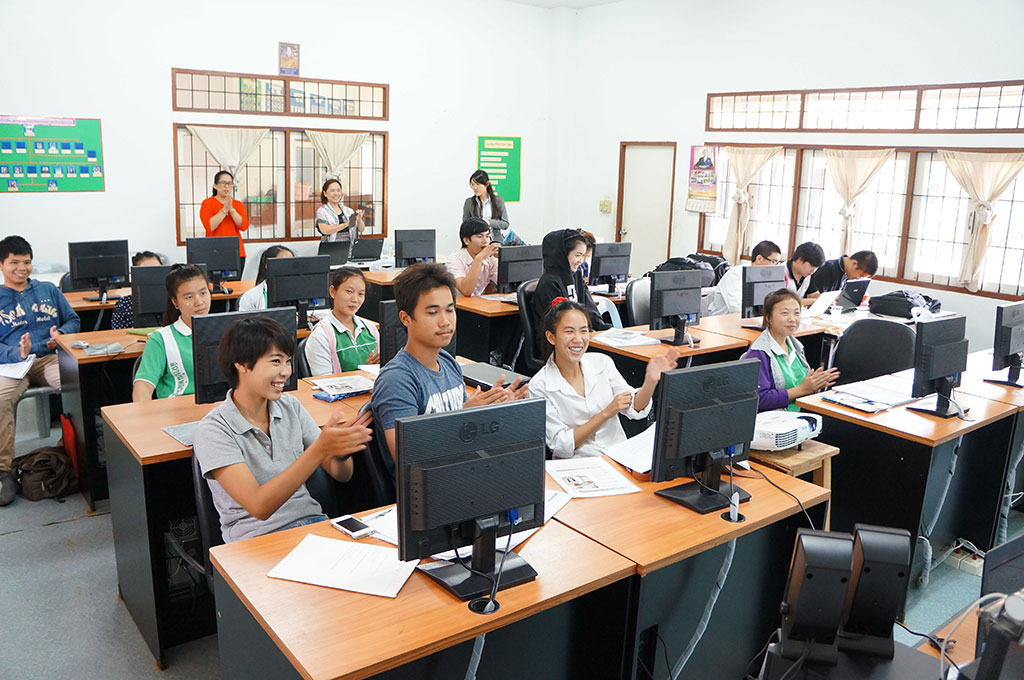Powering Up Small and Beautiful Businesses
By Supahrat Juramongkol , Community Affairs Manager, Microsoft Thailand
The future outlook for youth? Bleak.
The 56-character title Global Employment Outlook: Bleak Labour Market Prospects is all we need to know about the paper released by the International Labour Organization.
The current recession has hit the global job market in many ways. Not only is the mix of jobs transformed, but so is the way they’re being done. Against this backdrop of uncertainty rises the micro-entrepreneur: self-employed small business owners who use their own skill sets or assets as the base of their business. This person acts as the customer, distributor, employee and employer, all rolled into one. More than ever, micro-entrepreneurship plays a key role in poverty alleviation.
Last year, the ASEAN Foundation and Microsoft rolled out a new project ‘Enhancing ICT Skills of Small Medium Enterprises (SMEs) in ASEAN’, a spin-off of our earlier project that taught Indonesian farmers ICT skills, to support aspiring entrepreneurs.
This new project for SMEs and micro-entrepreneurs (budding and not) has already kicked off in Vietnam. After Thailand, Microsoft will launch it in Indonesia, then in the Philippines.
We tend to work with local partners where the project takes place, and for Thailand, that was the Research Center of Communication and Development Knowledge Management (CCDKM). The curriculum was developed by the ASEAN Foundation, and delivered by the very experienced Niko Atmadja and Prima Sari who flew in from Indonesia.
 Youth participants in a skills training class
Youth participants in a skills training class
We held training sessions in Thailand’s largest cities, Bangkok and Chiang Mai, where young enterprising people were taught technology tools that can improve the productivity of the businesses they want to run–if they are not already doing so.
In the beautiful Mae Rim district of Chiang Mai province, we were joined by 18 young people from diverse backgrounds. Some have families running small businesses, and others are interested in starting their own businesses.
There was an aspiring fashion designer who regaled us with her designs, and a young man who sat us down to figure out how his family’s homestay business can be improved to help the local community. Sometimes, listening to these young people makes me wonder what I was doing when I was at their age!
The students are very bright and focused. They’re young—the youngest was 19 years old—so they need a little nudge in the right direction toward what the business world and financial institutions need: for example, how to use Outlook to send out invitations, how to use auto-response and how to do remote conferencing. They have to also learn how to answer these questions for themselves: How do I differentiate myself from my competitors? Who is my target audience? Why do I sell what I sell?
Writing good business plans, proper document management and other skills are vital for SMEs in accessing formal sources of funds for growth. The participants also learnt how to track expenses, generate finance graphics and create blogs.
But they are not simply beneficiaries. The training also coached them in using the curriculum to teach other micro-entrepreneurs the same skills, so a multiplier effect can be generated.
Jirasak Kumwong, a bright-eyed 25-year-old young man who wants to start his own publication design business told me, “I can’t wait to start the next phase where we’ll pass on our knowledge to other young people like us. We’re looking at training 200 people in all. This is very good. It raises skills of the community across the board.”
Another participant said, “I can now make a brochure to advertise and promote my business. I don’t need to hire somebody for that. This will help me to save money!”
Spot on!